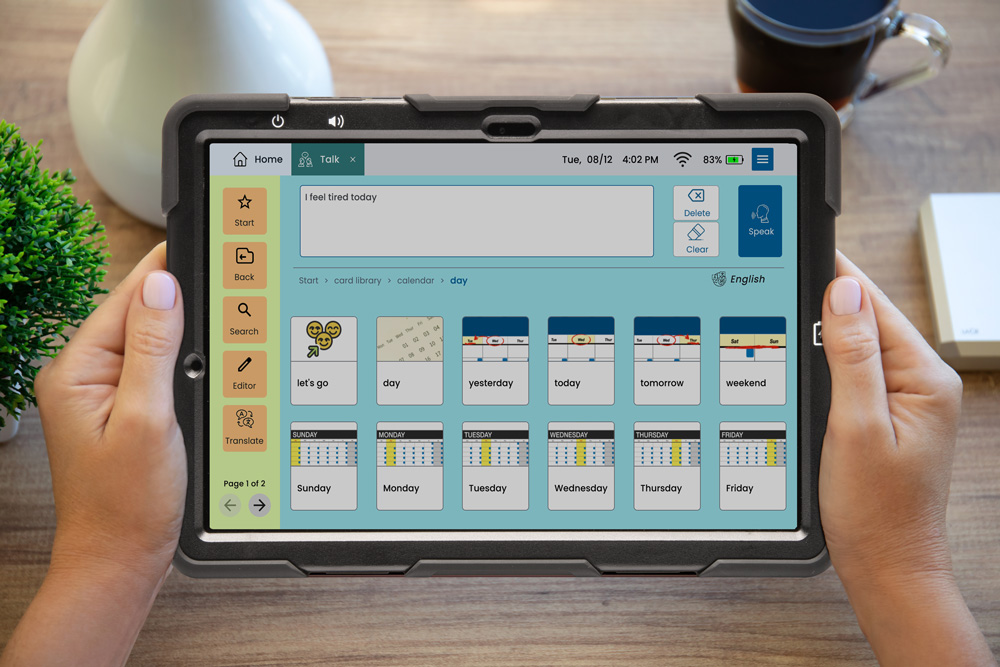
Prior to the COVID-19 pandemic, many individuals with aphasia and their caregivers had already felt the isolating effects of aphasia. But with so much of the world currently under orders to stay home, that isolation has only grown evermore present. Managing isolation and the stress and anxiety it brings is no small feat.
To help, we’ve listed these four tips to help you better manage your stress while on lockdown.
1. Stop obsessing over the news.
It is easy to leave the television on and obsess over every story, statistic, and controversy. While it is good to be well informed, it can also have a grave impact on your health and well-being. So, it’s advisable to limit your amount of screen time and focus on more positive activities.
Alternatively, you may also consider tuning in to some good news. Recently, actor and comedian John Krasinski, best known for his role as Jim on NBC’s The Office launched a YouTube Channel exclusively dedicated to sharing good news from around the globe.
2. Get your home in order.
Look around your home and consider whether there are projects and tasks you’ve previously avoided due to a lack of time. Now is an opportune time to clean out your closets, organize the basement, or get your tool chests in order.
Consider the advice offered in the New York Times Best Selling Book, The Life-Changing Magic of Tidying Up: The Japanese Art of Decluttering and Organizing. In short, if something you own doesn’t spark joy, get rid of it. If it does spark joy, make sure it’s in its proper place.
3. Find ways to challenge yourself.
Focus on activities that can help you to continue to grow and challenge yourself on a personal level. Consider reading or listening to Nobel Prize winning books. Have a friendly competition or work through a tough puzzle video game with friends and family.
You may also want to consider taking the time to practice or help someone to practice their speech exercises.
If you need suggestions around how to improve your communication, consider a free consultation with a Lingraphica communication specialist.
4. Stay connected to others even from afar.
Although we may not be able to enjoy close physical proximity with our loved ones, we can still stay connected via phone, text message, chat, and especially video conferencing.
Video conferencing apps like Apple’s FaceTime, Facebook’s WhatsApp, Google Duo, Microsoft Skype, and Zoom are often already installed on your device and are very easy to use.
You may also consider joining a live online meetup. Lingraphica recently partnered with the Aphasia Recovery Connection (ARC) to deliver a series of live daily online meetups for individuals with aphasia and their families.
Finally, be patient with yourself on days you are feeling stressed out, depressed, or anxious. If you are accepting of your feelings and give yourself the opportunity to adapt, you’ll begin to see ways to make the most of these less than ideal circumstances.
About Contributor
Lingraphica helps people with speech and language impairments improve their communication, speech, and quality of life. Try a Lingraphica AAC device for free.













